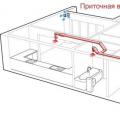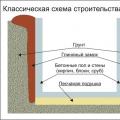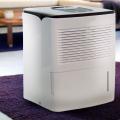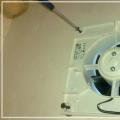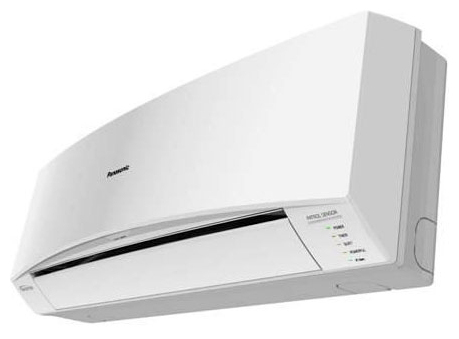
Air conditioning is a modern device that allows you to maintain the desired temperature in the room. In Russian conditions, the air conditioner is a good alternative, including to traditional heating radiators, although the air conditioner itself is not intended to be the main source of heating. Be that as it may, the air conditioner allows you to maintain comfortable indoor conditions in both cold and warm periods of the year. When choosing an air conditioner, each person faces difficulties, because a huge number of models are currently presented on store shelves.
Questions immediately arise: which air conditioner is better? What type of air conditioner is best for an office or home? What power of the device is required for a particular room? And finally, should you choose a conventional air conditioner or prefer a more expensive model with inverter technology? If the buyer can still figure out the types and power of modern air conditioners on his own, then the answer to the last question requires certain knowledge from him. Let's explain what inverter technology is and why it is used in air conditioners.
However, before choosing between an ordinary air conditioner and a device with inverter technology, a person needs to decide on the type of air conditioner to buy. As you know, all modern air conditioners can be divided into three main types - monoblocks, mobile air conditioners and split systems. Window monoblocks are mounted directly in the window opening, and mobile ones are placed on the floor. These are the simplest types of air conditioners, characterized by low price, ease of installation and ease of maintenance. However, they have limited power, increased noise, and lack of a range of features.
Of course, a more expensive and advanced type of modern air conditioners are split systems. Such air conditioners consist of external and internal blocks. Thanks to the installation of an outdoor unit with a compressor on the facade or outer wall of the building, quiet operation of the air conditioner is ensured. Split systems allow you to completely hide the presence of an air conditioner in the room, they have high power and increased functionality (air ionization, plasma cleaning, humidification, etc.). It is in split systems that the so-called inverter technology is implemented, which will be discussed later.
inverter
What is an inverter? The phrase "" often confuses buyers who come to the store to choose the right model of air conditioner. In fact, these are just air conditioners that are equipped with a special device - an inverter that can convert alternating electric current into direct current, and back into alternating current. In modern air conditioners, the inverter controls the voltage, frequency and current, thereby allowing you to continuously adjust the performance of the air conditioning compressor.
Actually, the inverter changes the frequency of the electric rotation of the compressor, which opens up the possibility for smooth regulation of the cooling capacity of the room, depending on the specific situation. A non-inverter air conditioner, on the other hand, regulates the air temperature in the room stepwise, since periods of its operation alternate with periods of shutdown.
Inverter air conditioners are equipped with a special microprocessor that ensures the optimal operation of the compressor based on continuous analysis of information from the air conditioner sensors. For the first time, an inverter air conditioner capable of smoothly adjusting its power appeared back in 1981. The first split system with inverter technology was offered by Toshiba, which still offers consumers various models of inverter air conditioners. But following Toshiba, other manufacturers of climate equipment began to produce air conditioners with an inverter.
The principle of operation of the air conditioner with and without an inverter
To understand the advantages and essence of inverter technology, it is necessary to understand how a conventional air conditioner and a device equipped with an inverter work. A conventional non-inverter air conditioner has only two compressor operating modes - “On” and “Off”. Accordingly, the operation of such an air conditioner is based on short pulses. When the air conditioner is turned on, it starts to work at full power until the room temperature cools down to the level set by the users and then turns off completely. After an increase in temperature by three or more degrees, the air conditioner turns on again at full power, and so on through the cycle.
An inverter air conditioner works in a completely different way. It does not have any fixed capacity like a conventional air conditioner, it maintains the optimum temperature by continuously adjusting the compressor power. When turned on, it starts to work at full power. But after the air temperature in the room has dropped to a predetermined level, the compressor reduces speed and the inverter air conditioner operates at minimum power. Thus, the inverter air conditioner works constantly, smoothly adjusting its power to maintain optimal conditions.
The ability to operate at minimum power allows the inverter air conditioner to save energy. In addition, due to the lack of constant on / off, like a conventional air conditioner, inverter models increase the life of the compressor. After all, the main wear of the compressor, as a rule, occurs precisely at the time of start-up. It is also important to note that when using an inverter air conditioner, temperature fluctuations in the room will not exceed one degree.
Advantages and disadvantages of inverter technology
Based on the principle of operation of an inverter air conditioner, its undoubted advantages for the consumer can be distinguished:
More accurate maintenance of the temperature regime in the room (± 0.5С) and stability of the microclimate without any sudden temperature fluctuations, which reduces the risk of catching a cold;
Energy savings (up to 25 - 30%) due to the possibility of the compressor operating at low power and the absence of even short-term overloads in the electrical network;
The fastest possible access to the required temperature regime;
Low noise level due to the absence of periodic switching on and off of the fan of the indoor unit;
Longer compressor life due to uniform load;
Ability to operate inverter air conditioner in heating mode at low temperatures (up to minus 15 degrees);
Flexible inverter power control ensures high overall efficiency of the air conditioner.
As for the shortcomings of modern air conditioners with inverters, there are only two of them. And, first of all, of course, a higher price compared to conventional models of air conditioners. In particular, the cost of inverter models can be 30 to 100 percent higher than the price of conventional air conditioners, which hits the budget quite significantly. This often turns off buyers. However, in terms of the price-quality ratio, inverter air conditioners outperform their more inexpensive counterparts. After all, they last longer and also save energy. The second disadvantage of air conditioners with an inverter is their sensitivity to voltage fluctuations in the network due to more powerful and advanced electronic filling. A modern inverter air conditioner is not very adapted to voltage fluctuations and in the event of sudden surges it can simply burn out.
Choosing an inverter air conditioner
Although inverter models of air conditioners are significantly more expensive, as we have already seen, they have many advantages over conventional air conditioners. In what cases is an inverter air conditioner preferable? Of course, an inverter air conditioner should be chosen when the most stringent requirements are imposed on climate equipment in terms of comfort and noise level. Only an inverter air conditioner operating in constant mode is able to maintain a comfortable indoor climate. Such an air conditioner is best installed in a bedroom, children's room or in any other room where comfort and uniform distribution of cooled air throughout the room are of paramount importance. An additional argument in favor of the inverter air conditioner is its low noise. Thus, it will not disturb your sleep with its annoying buzzing.
It is advantageous to install an air conditioner with an inverter when you plan to live indoors for a long time. Since, even for the initial investment, such an air conditioner looks like the most expensive one, but thanks to its long service life and low power consumption, its purchase will pay off in full. Also, an inverter air conditioner is also preferable if you are going to use climate equipment to heat the room in the winter. After all, an air conditioner without an inverter is periodically turned off, as a result of which there is a risk of freezing of the fan of the outdoor unit.
For office, utility or industrial premises where there are no such increased requirements for comfort, it is quite possible to choose more without an inverter. In addition, it is better not to buy an inverter air conditioner if the stability of the voltage in the electrical networks of your home leaves much to be desired.

